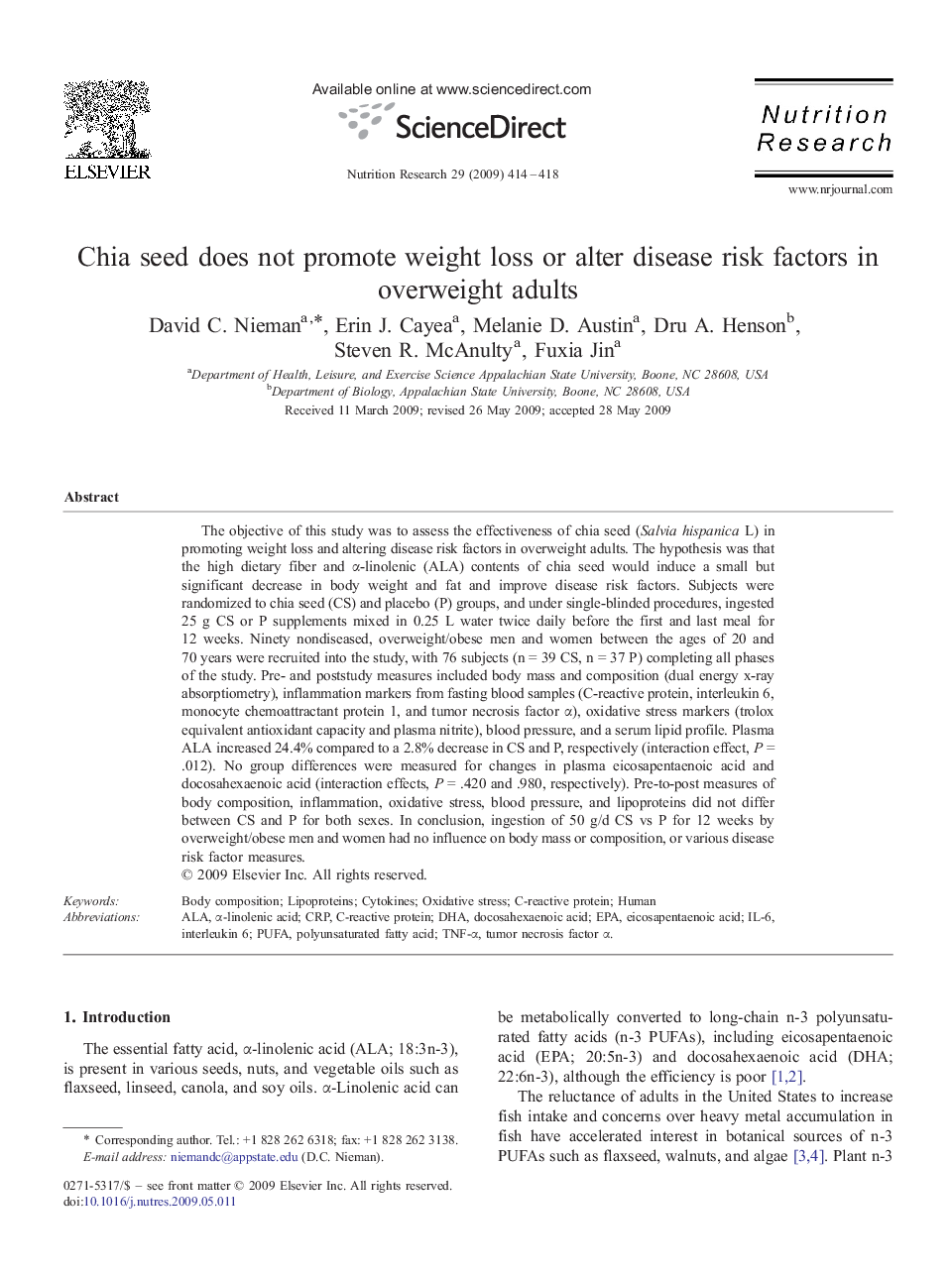| Article ID | Journal | Published Year | Pages | File Type |
|---|---|---|---|---|
| 2809516 | Nutrition Research | 2009 | 5 Pages |
The objective of this study was to assess the effectiveness of chia seed (Salvia hispanica L) in promoting weight loss and altering disease risk factors in overweight adults. The hypothesis was that the high dietary fiber and α-linolenic (ALA) contents of chia seed would induce a small but significant decrease in body weight and fat and improve disease risk factors. Subjects were randomized to chia seed (CS) and placebo (P) groups, and under single-blinded procedures, ingested 25 g CS or P supplements mixed in 0.25 L water twice daily before the first and last meal for 12 weeks. Ninety nondiseased, overweight/obese men and women between the ages of 20 and 70 years were recruited into the study, with 76 subjects (n = 39 CS, n = 37 P) completing all phases of the study. Pre- and poststudy measures included body mass and composition (dual energy x-ray absorptiometry), inflammation markers from fasting blood samples (C-reactive protein, interleukin 6, monocyte chemoattractant protein 1, and tumor necrosis factor α), oxidative stress markers (trolox equivalent antioxidant capacity and plasma nitrite), blood pressure, and a serum lipid profile. Plasma ALA increased 24.4% compared to a 2.8% decrease in CS and P, respectively (interaction effect, P = .012). No group differences were measured for changes in plasma eicosapentaenoic acid and docosahexaenoic acid (interaction effects, P = .420 and .980, respectively). Pre-to-post measures of body composition, inflammation, oxidative stress, blood pressure, and lipoproteins did not differ between CS and P for both sexes. In conclusion, ingestion of 50 g/d CS vs P for 12 weeks by overweight/obese men and women had no influence on body mass or composition, or various disease risk factor measures.
